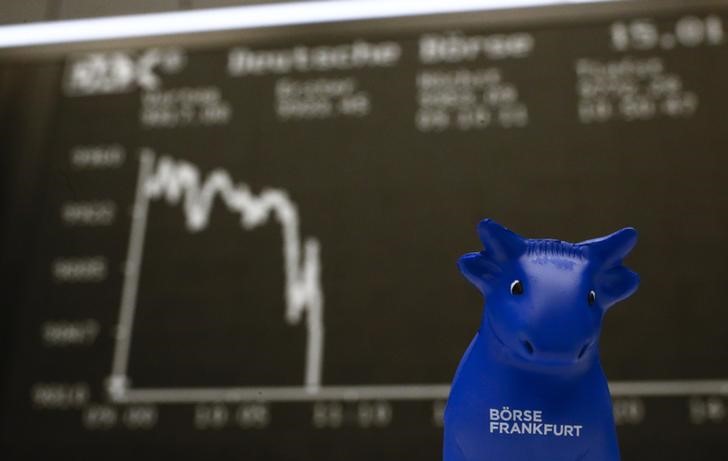By Peter Nurse
Investing.com - European stock markets slipped lower Wednesday, weighed by signs of slowing growth in France ahead of the key Eurozone inflation release.
By 03:50 ET (07:50 GMT), the DAX in Germany traded 0.3% lower, the CAC 40 in France fell 0.4%, and U.K.’s FTSE 100 dropped 0.3%.
Data released earlier Wednesday showed that French price growth decelerated by more than expected in August, edging down from its highest mark since the early 1990s during the previous month.
The country's closely-watched consumer price index rose by 6.5% when harmonized with the European Union's methodology, dropping from 6.8% in July.
As welcome as this fall is, separate data showed that French consumer spending slumped 0.8% in July, a sharp drop from the revised lower 0.1% gain the previous month. This suggests that the historic high inflation levels are severely impacting discretionary spending in the Eurozone’s second largest economy.
All eyes are now likely to be on the release of the latest Eurozone consumer price index later in the session. This is expected to show European inflation hit a record high of 9% in August, putting further pressure on the European Central Bank to aggressively raise interest rates next month.
Europe's gas prices have backed down from record highs, but are now climbing once more as Russia has shut off gas flow along the Nord Stream pipe to Germany, for the second time in as many months.
Earlier in the day, Chinese manufacturing activity contracted for a second straight month in August, as COVID-19 lockdowns and a brewing power crunch continued to weigh on economic activity.
In corporate news, Airbus (EPA:AIR) stock fell 1.9% after the planemaker announced Chief Financial Officer Dominik Asam will leave the company in 2023 to become the finance chief of German software giant SAP (ETR:SAPG).
Italian luxury group Brunello Cucinelli (BIT:BCU) stock fell 5.9% after posting its half-year results, while Belgian clothing retailer Ackermans & Van Haaren (EBR:ACKB) stock rose 5.8% after its first-half results.
Oil prices edged lower Wednesday, continuing to weaken despite signs of firm fuel demand in the United States, the largest consumer in the world.
Data released late Tuesday by the American Petroleum Institute, an industry body, showed U.S. crude inventories unexpectedly rose by 593,000 barrels last week. However, gasoline stockpiles fell by 3.4 million barrels, suggesting consumer demand for gas has proved resilient despite rising inflation and interest rates.
Yet, despite this, oil is headed for a third straight monthly drop, the longest losing run in more than two years, largely on prospects for slower global growth as central banks aggressively lift interest rates.
By 03:55 ET (07:55 GMT), U.S. crude futures traded 0.4% lower at $91.27 a barrel, while the Brent contract fell 0.4% to $97.46. Both benchmarks slumped around 5% on Tuesday, the steepest decline in around a month.
Additionally, gold futures edged 0.2% lower to $1,732.65/oz, while EUR/USD traded 0.1% lower at 1.0004.
